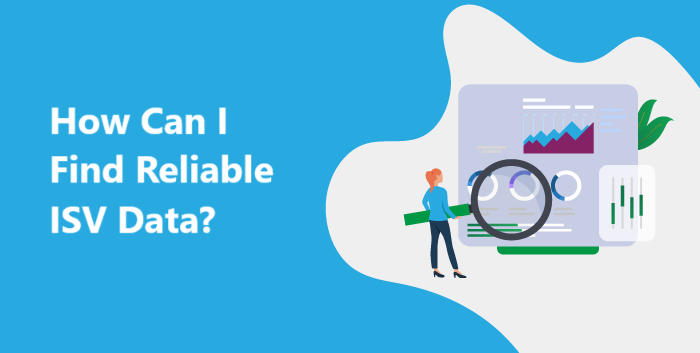I spend a decent amount of my time each day on business development. Getting our message out into the world so that we can serve more customers is big part of my mission. When I look at our wins and our losses, I realize that I have bumped up against one reason in particular why people don’t want to give us a try that I just had to address.
The number one reason why potential customers decide not to work with us has nothing to do with our offer, or our price. In fact, you’d probably be surprised to learn it’s because they were disappointed in the past when they worked with other vendors, and they are too afraid to try again.
I’m always a little surprised when this happens to be honest. I mean, I get it. You were burned in the past and you want to avoid the pain you went through. But deciding not to outsource at all because of that? That’s like saying, my ex-boyfriend broke my heart, so I am never going to fall in love again with anyone else ever. There are some people that do that, and that’s their choice. It’s an extreme reaction in my opinion, AND it also means that you have decided to live your life alone. When it comes to outsourcing, that means you have chosen to handle all of your marketing in-house instead of finding a reliable outsourcer to support your initiatives. I don’t know about you, but if your goal is to grow, branch out into new markets, and create a global business, it’s pretty much impossible to do it all in-house all the time. Even just from a language coverage standpoint that’s extremely difficult.
For me it’s a shame because it means that you are dragging your past into the present moment and refusing to learn from the experience. Every vendor is different and you could have a better experience if you allowed yourself to be open to new opportunities. So what can you do to stop dragging your past into the present and tainting your future relationships with potential vendors?
Here are some tips to help you get over the fear of outsourcing your marketing:
Create Standards and Stick to Them
Learning from past mistakes starts by taking personal responsibility for our role in co-creating the dynamic we found ourselves in. Whether you want to admit it or not, you had a role to play and it’s highly likely that it’s not all the vendor’s fault. It’s certainly not all your fault either, AND when we can pinpoint the things we could do better, we can bring more confidence into the next experience we create with a new outsourcer. Choosing the right marketing agency means we have taken our time to get to know the people behind the service. We have built trust and rapport with the vendor to establish a code of conduct we feel comfortable with. Listing out your requirements around communication (type, volume, frequency, and channels to be used) is key to starting off the working relationship on the right foot. Making sure that there are no invisible expectations, and that you have explicitly communicated your needs to the agency is paramount to creating a successful program.
Ask the Hard Questions
Similar to conducting a job interview, evaluating the skill set of your future vendor is an important step to take. Asking questions about their experience as it relates to your line of business is key to ensure they understand exactly what you are looking for. How do they ensure customer satisfaction? What do they do when a client is not happy with the service they’ve purchased? What does success look like for them? When you review their answers, how honest do you feel they have been with you? Just like with a job interview, no-one is going to tell you that they are lazy and will do the minimum amount of work possible to get you off their back. However, once you start working with them, that can unfortunately come to light. What is their cancellation policy? What guarantees do they provide when it comes to the deliverables? These questions can help give you a greater sense of certainty so that you don’t go into the relationship flying blind.
Speak to a Customer
It’s pretty rare for a vendor to agree to put you in touch with a customer, AND it’s a fantastic way to confirm that there’s more to it than just nice promises. Asking for a customer reference that you can speak to can help you understand what worked, what they learned from the experience, and what are some things to watch out for. It’s normal for there to be a period of adjustment with any new vendor; how long did it take them to find their groove with this outsourcer? Were there any difficulties communicating with them? What was their level of overall customer satisfaction? You will also be able to gauge the comfort level of the vendor when you ask for a reference to speak to. Are they quick to say they can’t or are they resourceful enough to find a way to fulfill your request? This will tell you a lot about the vendor themselves, so it’s absolutely worth inquiring about.
Create KPI’s Together for Measuring Success
One thing I have learned from my 25+ years of experience working in marketing is that when an outsourcer becomes a big black box, it doesn’t work. Many people outsource because they don’t want to have to deal with the day-to-day operations. While you certainly don’t need to micromanage your outsourcer, you do need to be kept up-to-date on what’s happening in the background because if you don’t, your assumption will be that they’re not working. I’ve seen this more times than I can count, in fact. And if you think about it, it’s human nature to assume that when you don’t see someone working that they aren’t putting forth the required effort. It’s an unfortunate part of how we were wired, which is why it’s super important for your vendor to keep you informed of updates regularly. Many outsourcers are afraid of being transparent with their customers about what’s not working, or where they are stuck. AND if you want to create the win-win with your vendor, you must know these things. Building rapport and establishing trust is a must so that your vendor is not afraid to tell you the truth about what’s happening in the field, good and bad alike. Working together with the vendor to create KPIs that go beyond the final deliverable, whether that be around the volume and quality of the sales pipeline created, the number of impressions created, the marketing qualified leads being nurtured, or questions brought forth by the team, is an important step towards creating a program that everyone feels great about.
Turn Invisible Expectations into Direct Communication
What I have found to be true for all relationships, whether they be personal or professional, is that invisible expectations leave everyone frustrated. I often say to people that I have a lot of skills, but mind-reading is not one of them. Of course, I say this in a joking way, but I also couldn’t be more serious. How can your vendor know what is important to you if you don’t tell them? How can they work to fulfill your needs if they have no clue what they are? I realized a long time ago that “common sense” is not so common—in fact, everyone is walking around with a different blueprint and what is logical to them may not be for other people. So the only way to be sure, is to be clear and communicate our expectations directly. I always check the language that I’m using to be sure that I am using words that can’t be misinterpreted. I also ask follow-up questions to be sure I’m not missing something I should be seeing. Getting into the habit of checking for understanding will help ensure that what you have communicated to your outsourcer has been well-received.
Final Thoughts
Just like all relationships, if you want to turn the working relationship you have with your marketing outsourcer into a true collaboration, it’s important to leave your apprehension behind and implement these tips for success.








